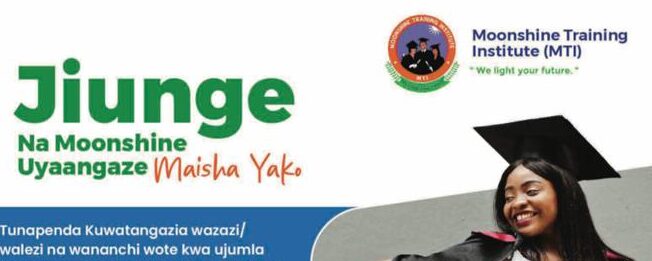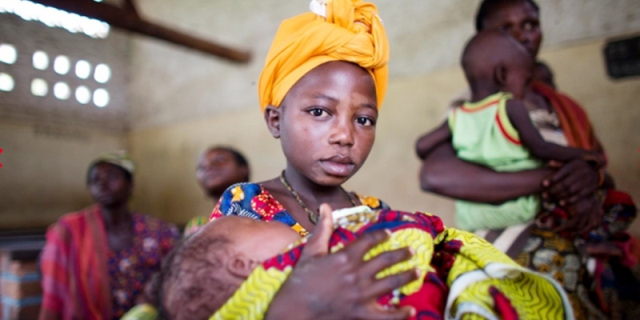MARIA Mabula who resides in Shinyanga region says that some girls in that region are forced to get married young to generate an income, or mahari (dowry), which can then be used by their brothers to secure a wife.
She says that in Mara region there is a practice known as Nyumba ntobu which involves an older, wealthy women paying a bride price for a young girl to become her wife. A man is then chosen to impregnate the girl and any children who are born belong to the older woman. In August 2014, the “Child Marriage-Free Zone†national campaign to end child marriage was launched.
It called for the review of discriminatory laws and renewed action in the health, education and legal sectors to prevent child marriage. The 2013 survey done by United Nations Population Fund (UNFPA) said that Tanzania has one of the highest child marriage prevalence rates in the world, and on average, almost two out of five girls are married before their 18th birthday.
About 37 per cent of the women aged 20-24 were married/in union before age 18. Data shows a 4 per cent decline since 2004 (41 per cent). UNFPA report says that child marriage in Tanzania mainly affects girls and women, Tanzanian women on average get married more than five years earlier than Tanzanian men. The Law of Marriage Act (1971) allows for boys to marry at 18 and girls to marry at 15.
They can marry at 14 if courts approve their request. Girls under 18 need parental permission to marry. In addition, Customary Laws run parallel to Statutory Laws. The Local Customary Law (Declaration) Order, GN 279 of 1963 allows each ethnic group to follow and make decisions based on its customs and traditions.
Prevalence is highest in Shinyanga which has 59 per cent, followed by Tabora (58), Mara (55), Dodoma (53), Lindi (48), Mbeya (45), Morogoro (42), Singida (42), Rukwa(40), Ruvuma (39), Mwanza (37), Kagera (36), Mtwara (35), Manyara (34), Coast (33), Tanga (29), Arusha (27), Kilimanjaro (27), Kigoma (26), Dar es Salaam (19), and Iringa eight per cent.
Child marriage in Tanzania occurs more frequently among girls who are the least educated, poorest and living in rural areas: 61 per cent of women aged 20-24 with no education and 39 per cent with primary education were married or in union at age 18, compared to only 5per cent of women with secondary education or higher, says the report. Household wealth influences the prevalence of child marriage among all wealth quintiles.
Girls from the poorest 20 per cent of the households were more than twice as likely to be married/in union before age 18 than girls from the richest 20 per cent of the households. In 2010, women aged 20-24 and living in rural areas were almost twice as likely to be married/in union before age 18 than their urban counterparts. This urban-rural divide has remained at roughly the same level since 2004.
Other drivers of child marriage include harmful traditional practices such as setting of bride price and the practice of female genital mutilation. Gender inequality lowers a girl’s and woman’s ability to make decisions related to her education and health but also when and who to marry. In Tanzania, married women have less control over their lives than married men do.
Two out of five married women do not participate in decision making regarding their own health care. In Mara region 8 per cent of women participate in household decision-making while in Kilimanjaro region the figure is 64 per cent.
Did you know there are countries in the region which have included minimum age of marriage in their constitutions? Ugandan Constitution affirms that a man and a woman are entitled to marry only if they are each of the age of eighteen years and above and are entitled at that age to equal rights at and in marriage, during the marriage, and at its dissolution.
On the other hand, Namibian Constitution says that men and women of full age, without any limitation due to race, colour, ethnic origin, nationality, religion, creed or social or economic status shall have the right to marry and to found a family. They shall be entitled to equal rights as to marriage, during marriage and at its dissolution “…my father was at the fore -front of arranging my marriage despite my young age of 11 years. This was immediately after undergoing FGM. I have had three children with my husband…..â€
The consequences of child marriage in Tanzania include increased experience of domestic and sexual violence. Girls married early are more likely to experience violence, abuse and forced sexual relations. Marital rape is not criminalised in Tanzania, rendering child brides even more vulnerable. Girls who marry and give birth before their bodies are fully developed are more at risk of maternal mortality and morbidity.
In Tanzania today, married girls between the ages of 15-24 are more likely to be HIV positive than unmarried counterparts (2.5 per cent/ 2.0 per cent). 15-24 year old girls who are divorced separated or widowed are HIV positive. Many young brides cannot negotiate safe sex even when they have knowledge about how to protect themselves and are under pressure to demonstrate their fertility.
Teenage pregnancy and motherhood are more common among young women living in rural areas and those from poorer families in Tanzania. Overall, 23 per cent of women age 15-19 are pregnant or already have children. Child brides are unable to cope with married life because at their young age they are not well prepared to handle family matters.
The government has shown its commitment to ending child marriage through particularly the promotion of girl’s education at all levels. This is reflected in the efforts to increase access to secondary education including through re-entry of pregnant girls to school to prevent child marriage.
Children’s Dignity Forum, (CDF) a children’s rights organization based in Dar es Salaam, has worked towards: Raising awareness to the public on child rights violations, particularly child marriage and female genital mutilation including through girls’ clubs; Influencing laws, policies and decision making with regards to the promotion and protection of children rights.
CDF partners with FORWARD UK and the Graça Machel Foundation among other International partners. Tanzania End Child Marriage Network has more than 25 Civil society organizations with the purposes of ending child marriage in Tanzania. CDF is the secretariat and the main objective of the network is to raise awareness of the harmful impact of child marriage by encouraging open, inclusive and informed discussions at the community, national and international level.
UNFPA Tanzania through UN Delivering as One supports national partners such as Ministry of Community Development, Gender and Children and Tanzania Media Women Association (TAMWA), Tanzania Gender Networking Programme (TGNP), and Children’s Dignity Forum, to conduct evidence based advocacy and awareness raising.
They do this through journalist trainings, investigative journalism, national surveys, and community based participatory action research, all focusing on gender based violence and particularly ending FGM and child marriage.
Child marriage is against Article 16(2) of the Universal Declaration of Human Rights, which states that “Marriage shall be entered into only with the free and full consent of the intending spouses.â€
Tanzania is signatory to the Convention on the Elimination of all Forms of Discrimination Against Women (CEDAW). Article 16 of CEDAW states that women should have the same right as men to “freely choose a spouse and to enter into marriage only with their free and full consentâ€, and that the “betrothal and marriage of a child shall have no legal effectâ€.
The CEDAW Committee has specified in its General Recommendation 21, paragraph 36, that the Committee considers the “minimum age†mentioned in Article 16 (2) to be 18 for both men and women.
Tanzania is signatory to the Convention of the Rights of the Child. In signing the Convention, Tanzania committed to take “all effective and appropriate measures with a view to abolish traditional practices prejudicial to the health of the children,†which includes, among other practices, female genital mutilation/cutting and child marriage.
The Programme of Action adopted by the International Conference on Population and Development (ICPD) in 1994, countries agreed on measures to eliminate child marriage as well as to “strictly enforce laws to ensure that marriage is entered into only with the free and full consent of the intending spouses.
Two years ago, The Tanzania Media Women’s Association (TAMWA) released a study which showed that Shinyanga had the highest child marriages prevalence rates in the country, whereby two out of five girls are married before reaching 18 years of age.
Speaking to journalists, the then TAMWA Executive Director Valerie Msoka said that gender violence still existed and it was affecting girls and women physically and psychologically.
The research showed prevalence was highest in Shinyanga with 59 per cent incidences, followed by Tabora with 58 per cent, Mara 55 per cent, Dodoma 51 per cent and Lindi with 48 per cent. Most of the children were married off because the Marriage Act of 1971 does not protect girls from marriage,she said, noting that the law had been under review for a long time.
The Law of Marriage Act allows for girls as young as 14 (with special permission), and always allows 15 year old girls to marry, something which affect not only girls but also national development, the director underlined. She pointed out that child marriage was a kind of severe gender discrimination which affects young girls and stops them from pursuing education, making them more vulnerable to HIV than their non-married age.
Child marriage occurs more frequently among girls who are least educated, with those living in poor rural areas almost always married before 18 years. We are in need of a new constitution which clearly states that education should be provided for free, especially to girls. It should remove all barriers facing girls and women within the society such as gender violence, negative cultural practices, decision making and the right to own land, she declared.
Gemma Akilimali, an independent consultant on gender and human rights issues has always insisted that human rights activists work on ensuring provisions in a constitution which ensure gender balance. Women are the ones affected physically and psychologically compared to men within the society, she asserts. Activists need womens rights and women’s dignity to be valued, obtain equal rights in leadership as well as girls’ rights in the society. These should be explained clearly in the new constitution, she demanded.
Traditions and customs affect most women in Tanzania because of patriarchy, hindering some rights of women in the society, such as owning land and affecting laws of inheritance. The constitution should clearly state rules of owning resources, she further demanded. The law of inheritance should empower women to have rights of inheriting the remaining properties from her husband and not other relatives.




Recent Comments